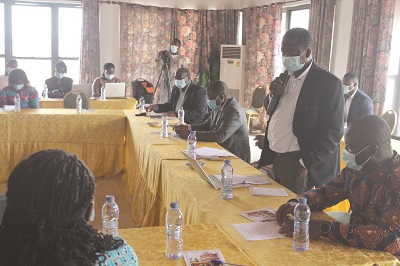
A research conducted in 300 communities within four districts of the Upper East Region has shown that mothers and newborns were receiving essential care with breastmilk as the only food.
This came to light during a Mother Baby Friendly health event in Accra yesterday.
Supported by Ghana Health Service (GHS), and UNICEF, the community component of the Mother Baby Friendly Health Facility Initiative (MBFHI) was implemented in Bawku, Bongo, Bolga and Kasssena Nankana West Municipalities over a two year period.
Results of the initiative showed improvements in early attendance of antenatal care (ANC), facility based deliveries and uptake of UNICEF and GHS recommended practices and male involvement.
According to the research, some nursing mothers in the Upper East region preferred to give water to their babies in addition to breastmilk to prevent heart burn and quench thirst during dry harmattan winds.
The Director of Dodowa Research Centre, Dr John Williams said the overall goal of the initiative was to contribute to the reduction of maternal newborn and infant deaths.
He said it was also to improve facility-based quality care for mother and newborns, increase optimal breastfeeding practices, postnatal care for mothers and newborns and support countries to develop, implement and monitor real-time data-driven national and subnational plans.
He said despite the positive outcome, challenges such as improving the frequency and regularity of outreach visits to households by Community-Based Health Planning and Services (CHPS) staff, reports of incorrect and questionable breastfeeding recommendations, inadequate health resources for communities and CHPS workers remained fragile.
A researcher at Navrongo Health Research Centre (NHRC), Mr Francis Yeji, recommended the need to improve the quality of newborn care infrastructure, services and resources, while strengthening monitoring and supervision.
He said it was necessary to incorporate prevention of stunted growth and early childhood development in the first 1,000 days by replicating the approach to community engagement, equip CHPS and communities to respectfully reach out to households and special populations that were particarly vulnerable.
Mr Yeji said Non Governmental Organisations (NGO) should broker and catalyse community engagement in maternal, newborn, infant and child nutrition and health and called on GHS to strengthen its health promotion team through capacity building, supportive supervision and routine monitoring.
BY AGNES OPOKU SARPONG







